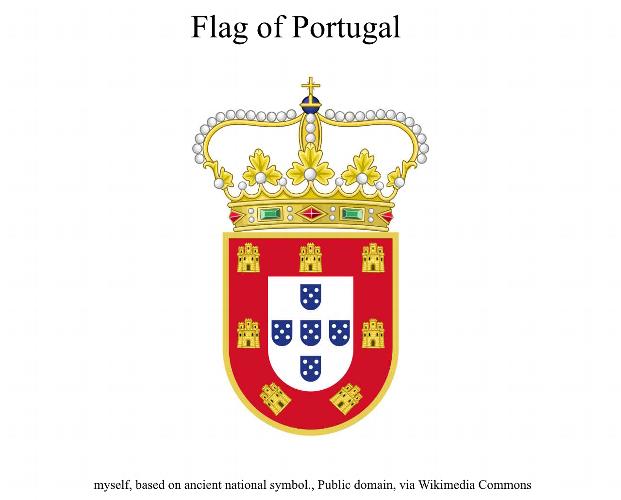To understand why so many Portuguese were distressed to see Tangier handed over to the English you need to know something of the previous two centuries' history of the Portuguese in Morocco.
From the time it established its independence in 1179 Portuguese ambitions were largely linked to the sea, building wealth from fishing and trading. As Portugal's maritime expertise developed the rulers looked overseas to expand their trading empire.
King John I of Portugal first cast his eyes on nearby Ceuta, a rich Islamic trading centre that was also home to pirates preying on Portuguese shipping. He took several years planning the attack - assembling an army of more than 20,000 fighting men including foreign mercenaries, and a fleet of 200 ships - all the while encouraging rumours that the object of his ambitions was elsewhere. His ploy was successful and in 1415 he conquered the city within 24 hours of landing.
Moroccan attempts to retake Ceuta were all repulsed, and the city became a naval base from which Portuguese ships could protect their own merchantmen and a safe harbour for Christian pirates preying on Muslim ships. However the trans-Saharan trade was simply redirected to Tangier and other ports, and the anticipated riches did not materialise, it became obvious that Ceuta was almost valueless without control of other port cities such as Tangier and Arzila.
During the mid fifteenth century Portuguese explorers charted their way down the west coast of Africa, conquering coastal towns and building forts as they went, but Portuguese attacks on Tangier remained unsuccessful.
A poorly organised expedition under Henry the Navigator in 1437 suffered a humiliating and costly defeat. The death in captivity of his younger brother Prince Ferdinand - who had been handed over as surety for Henry fulfilling the conditions of the truce, which never happened - left a deep wound on Portuguese pride, and the young Prince was considered a saint by many.
In 1458, under the new King Alfonso V later known as ‘the African' for his expansion of Portuguese influence on that continent, another attempt on Tangier in 1458 ended in failure when the 20,000 strong army was diverted to besiege and capture Ksar el-Seghir.
Yet another expedition against Tangier was launched in 1463, and three assaults were attempted in 1463 / 4 but all were repelled.
In 1471 Alfonso once again set out to capture Tangier, but this time diverted to Arzila, which he managed to take, killing some 2,000 defenders. Upon hearing news of this defeat the Moroccan garrison abandoned Tangier and the Portuguese occupied it this time without resistance.
Much of the coastal area of Morocco remained under Portuguese influence well into the sixteenth century, but in the 1540s Mohammed al-Shayk, later to become the first Saadian Sultan, expelled the Europeans from Agadir and the Portuguese withdrew from many of their Moroccan possessions, leaving only the small enclaves of Ceuta Tangier Mazagan.
In 1578 Portuguese the young King Sebastian I launched what he considered a crusade to restore Portuguese influence in Morocco. The Saadian Sultan, Abu Abdallah Mohammed II sought the 24 year old Sebastian's help to restore him to his throne which had been usurped by his uncle Abd al-Malik in concert with the Ottomans.
Against the advice of many the Portuguese and their Moroccan allies totalling 23,000 ventured inland. They were surrounded and totally annihilated by Abd al-Malik's army of 60 - 100,000. With about 100 survivors escaping to the coast, virtually every noble family in Portugal must have suffered the death, injury or capture and ransom of family members.
All three leaders died in the battle, but Sebastian's body was never identified and the tremendous loss led to the myth of Sebastian as Portugal's once and future King who would return to save his nation in its hour of need. Sebastian's lack of an heir and successor led to the unification of the throne of Portugal with that of Spain, or perhaps more accurately its absorption by that of Spain.
Ceuta was garrisoned with Spanish soldiers and soon became a Spanish possession, whereas Tangier remained almost entirely Portuguese.
It was against this backdrop that Catherine of Braganza's mother offered Tangier, along with her daughter, Bombay and a large cash incentive, to Charles II of England, in return for an army to help Portugal's fight for independence from Spain.
No wonder the governor of tangier objected to handing his dearly bought city to foreigners.




